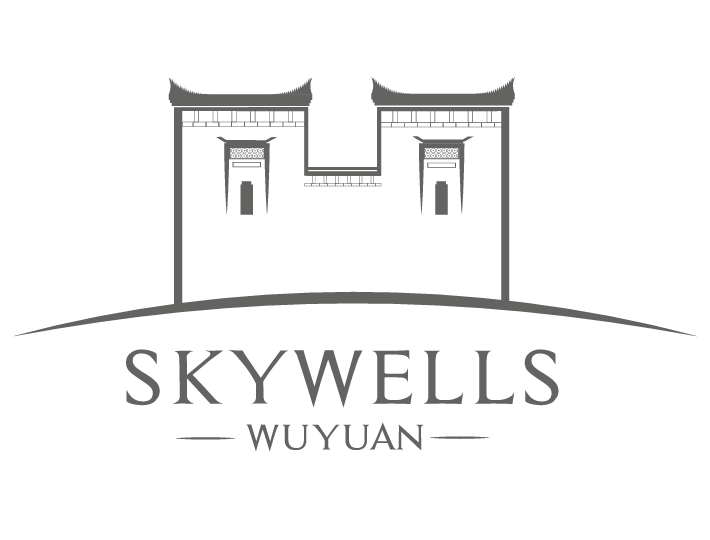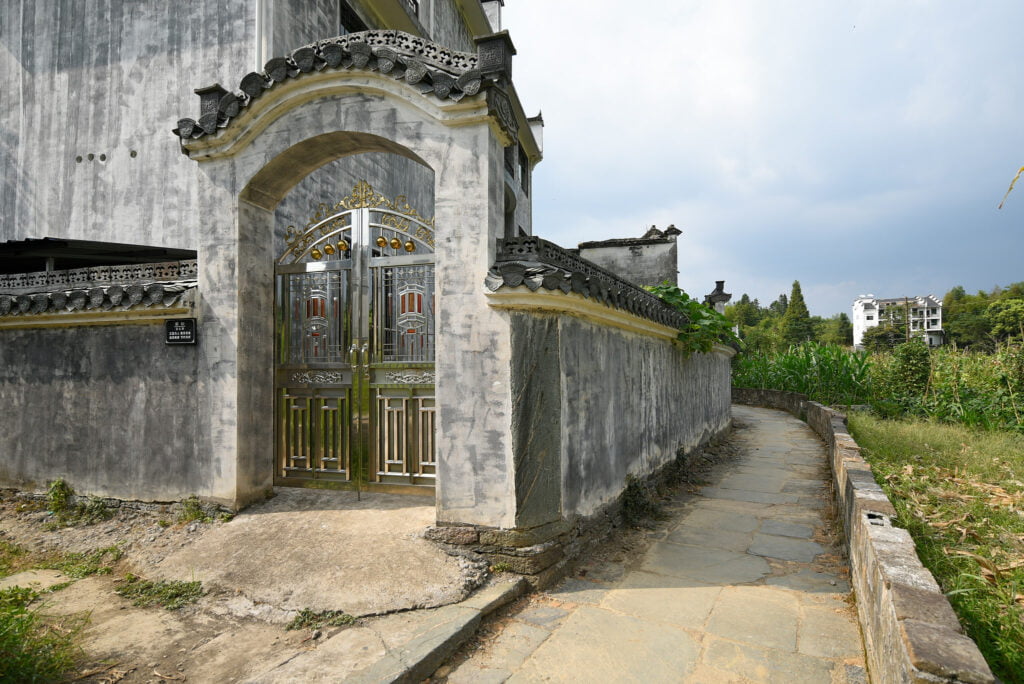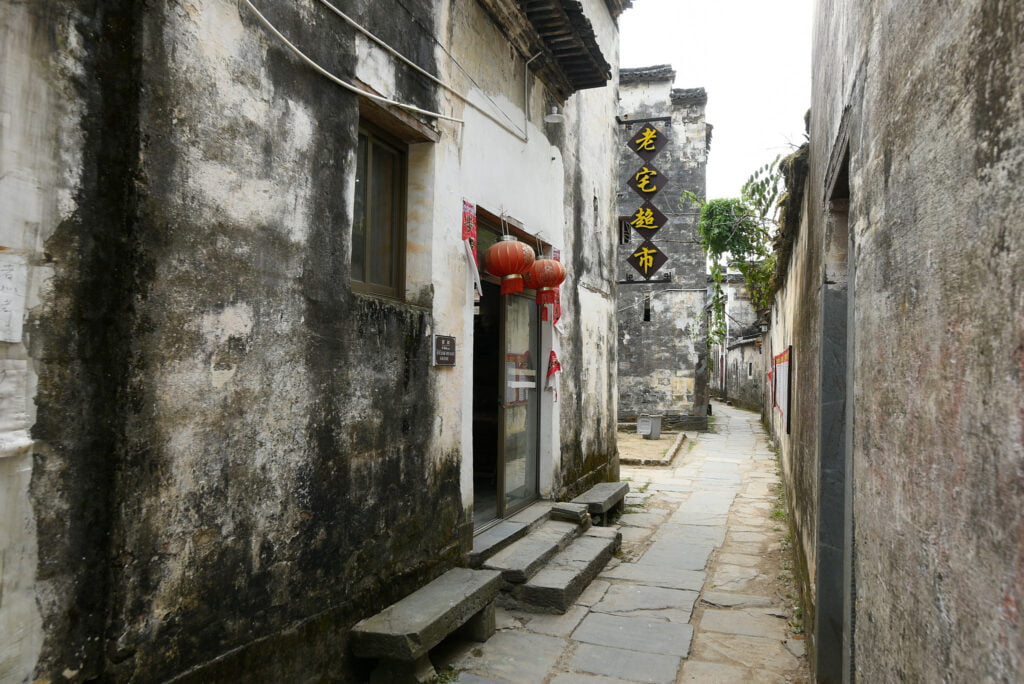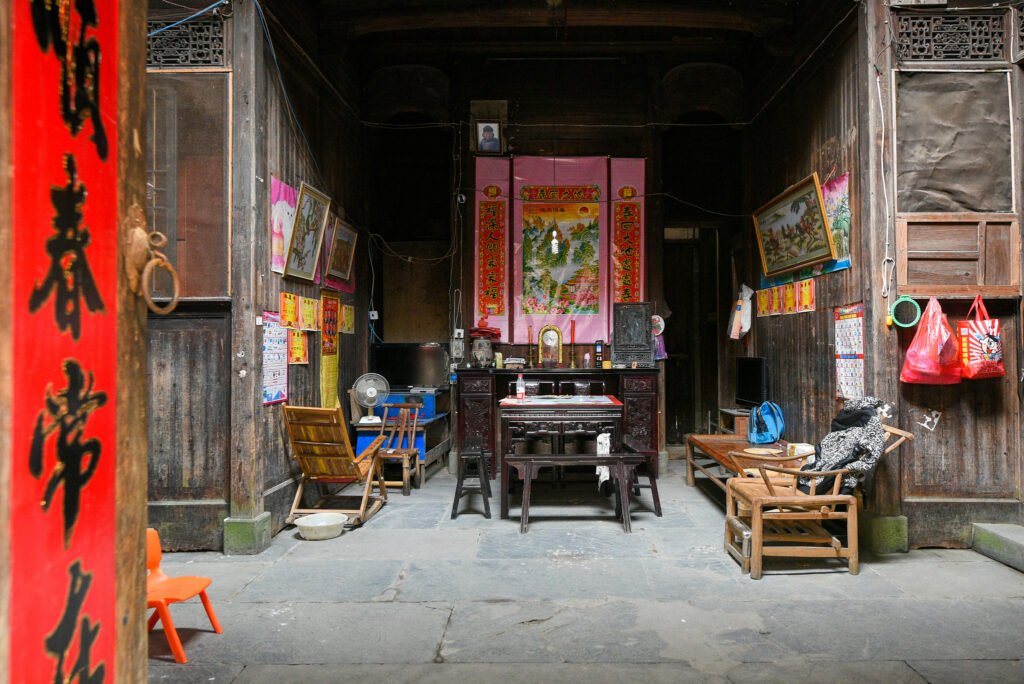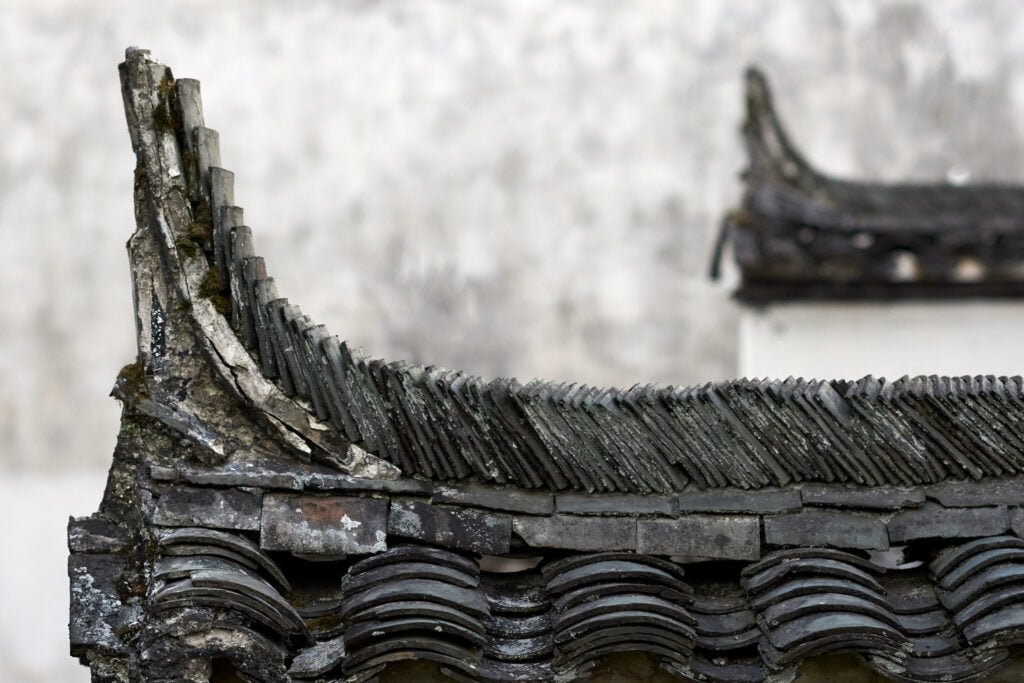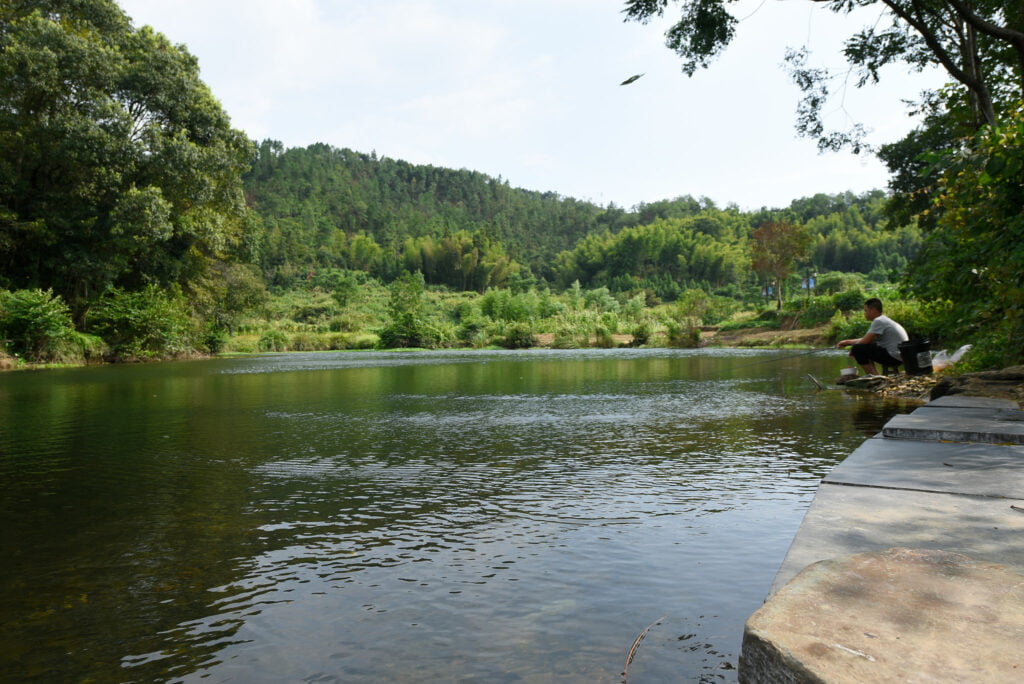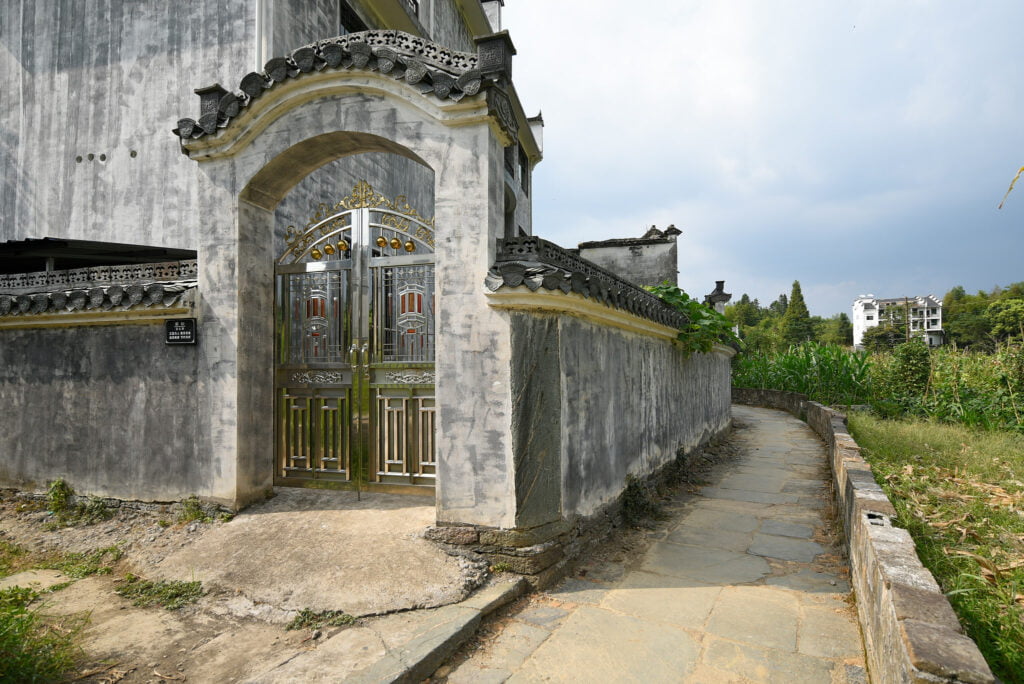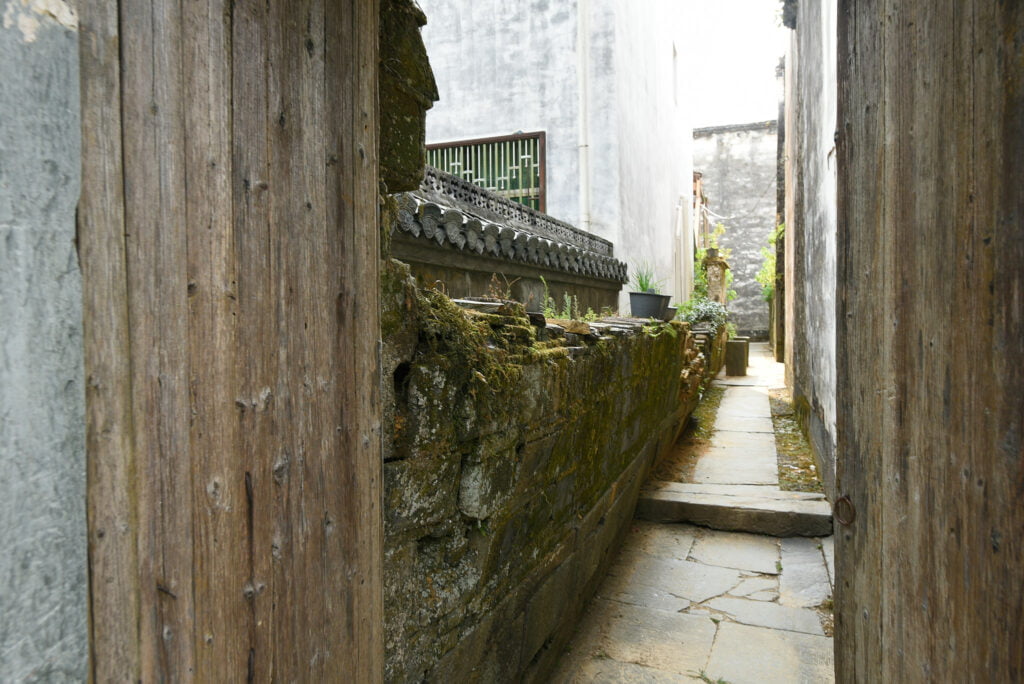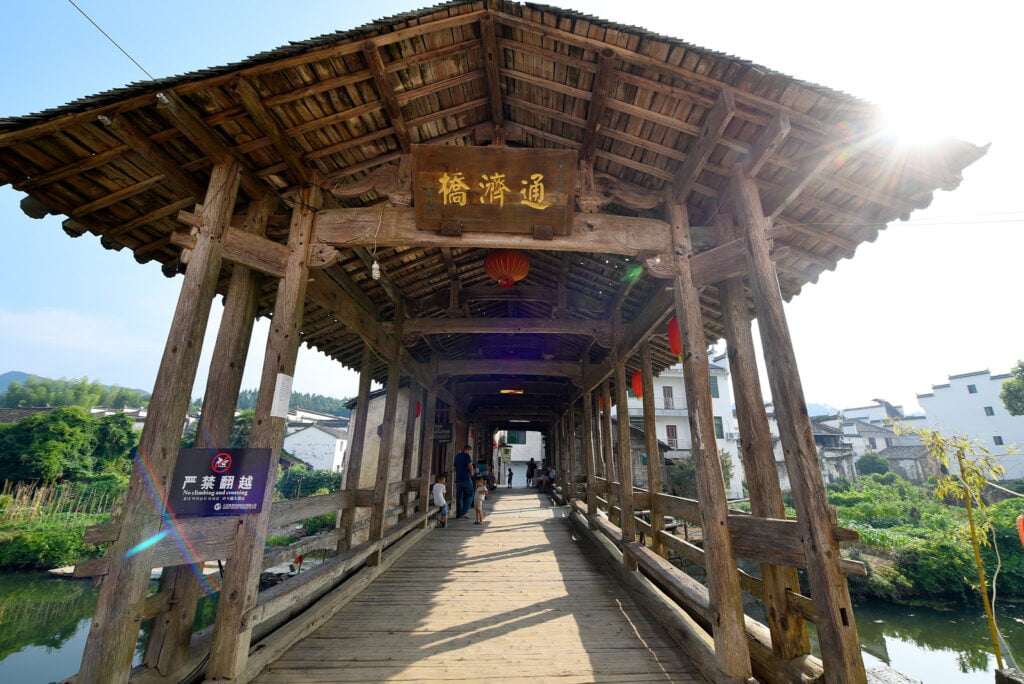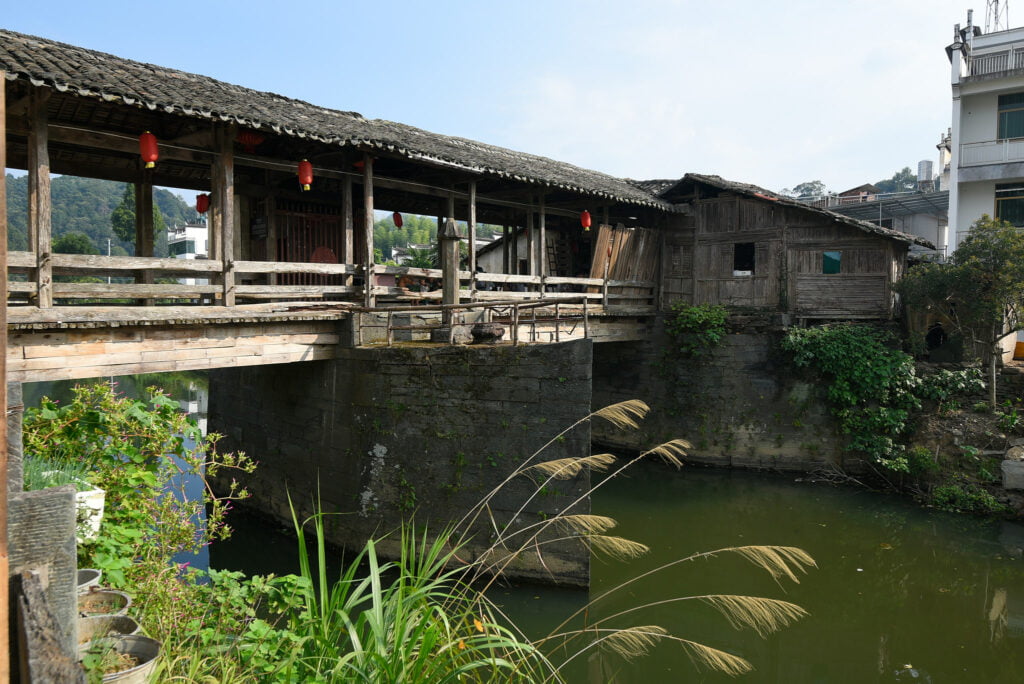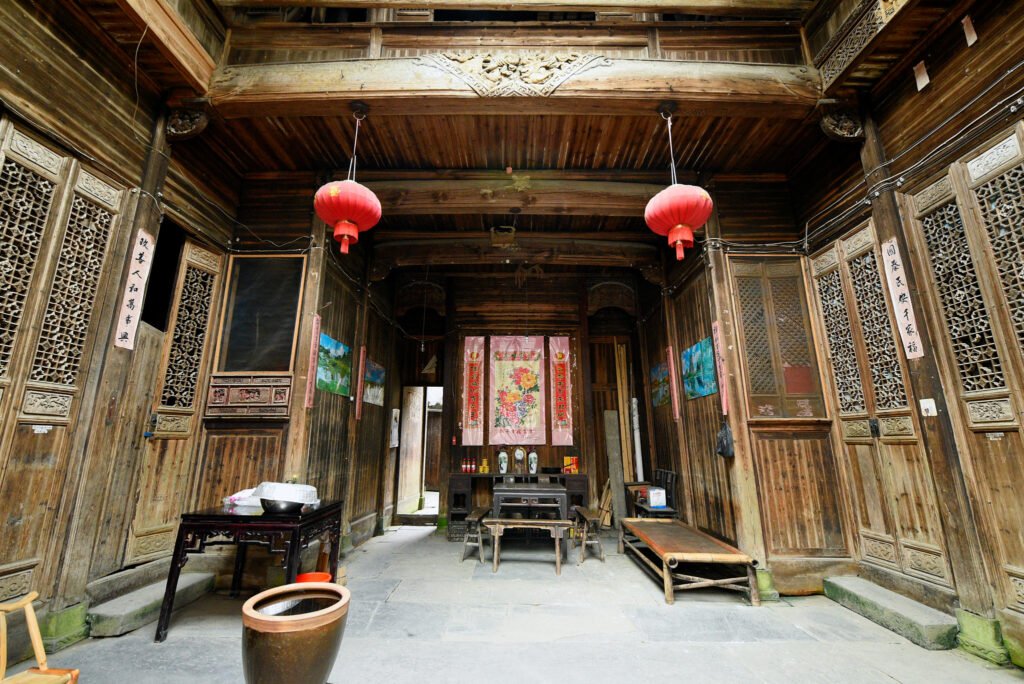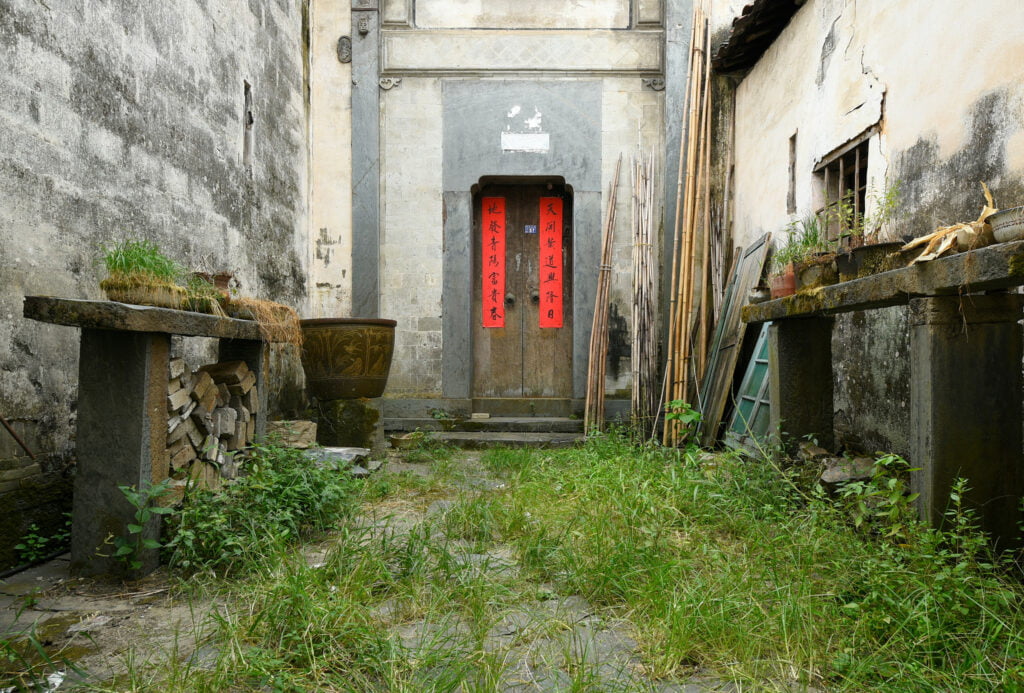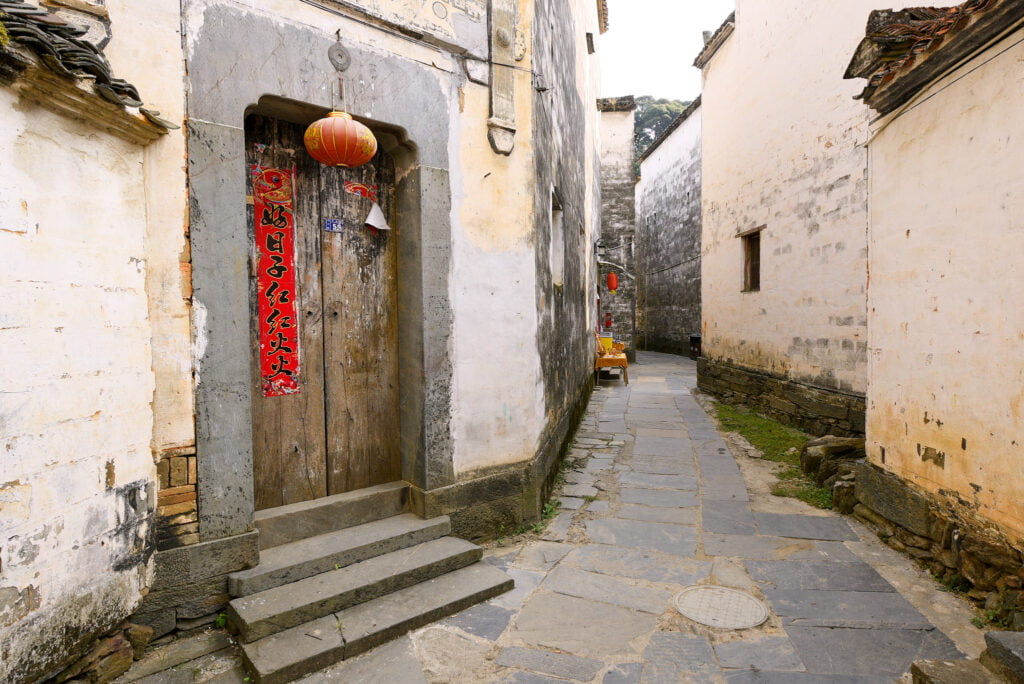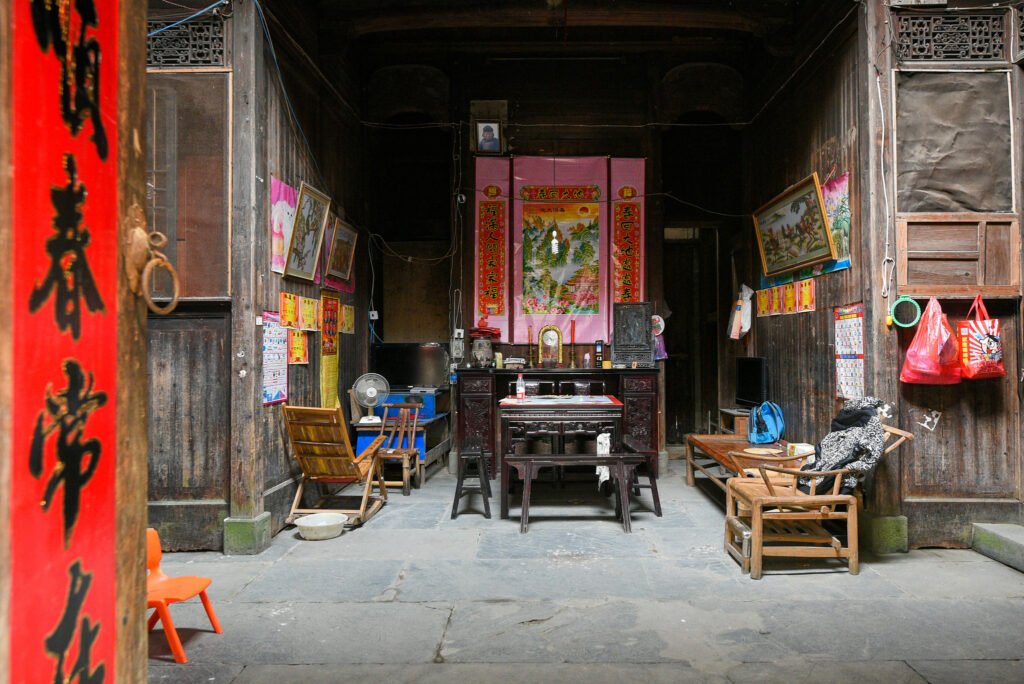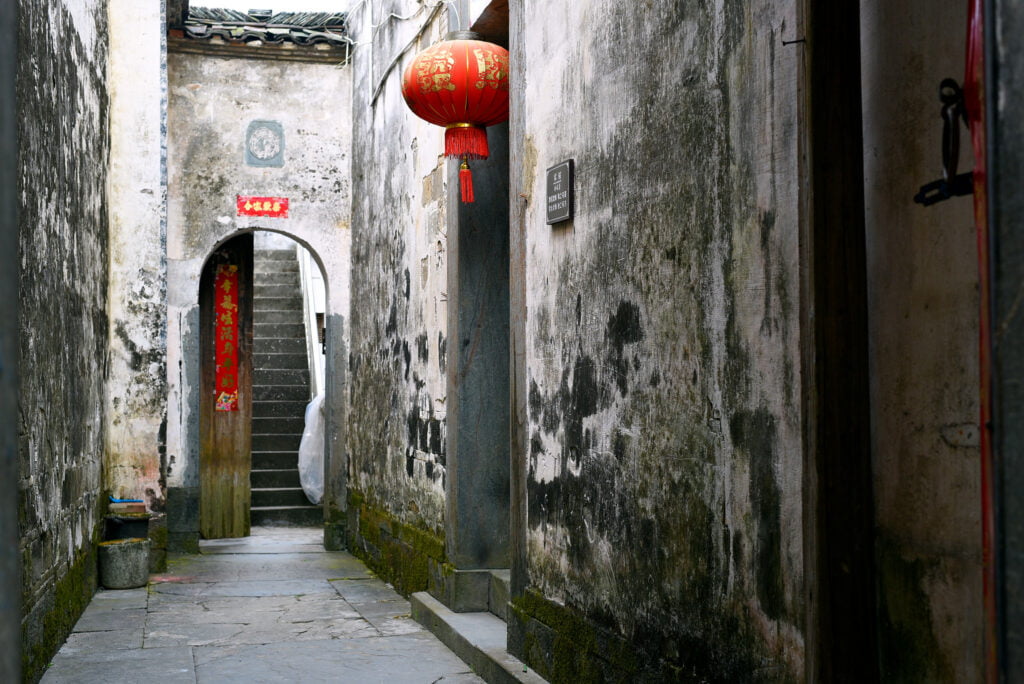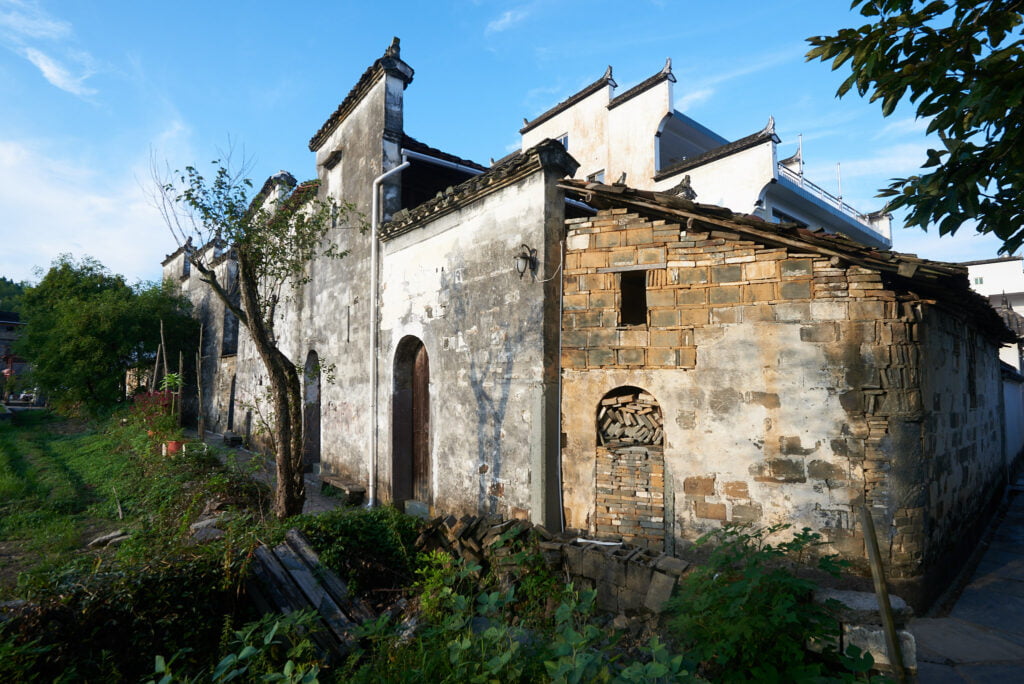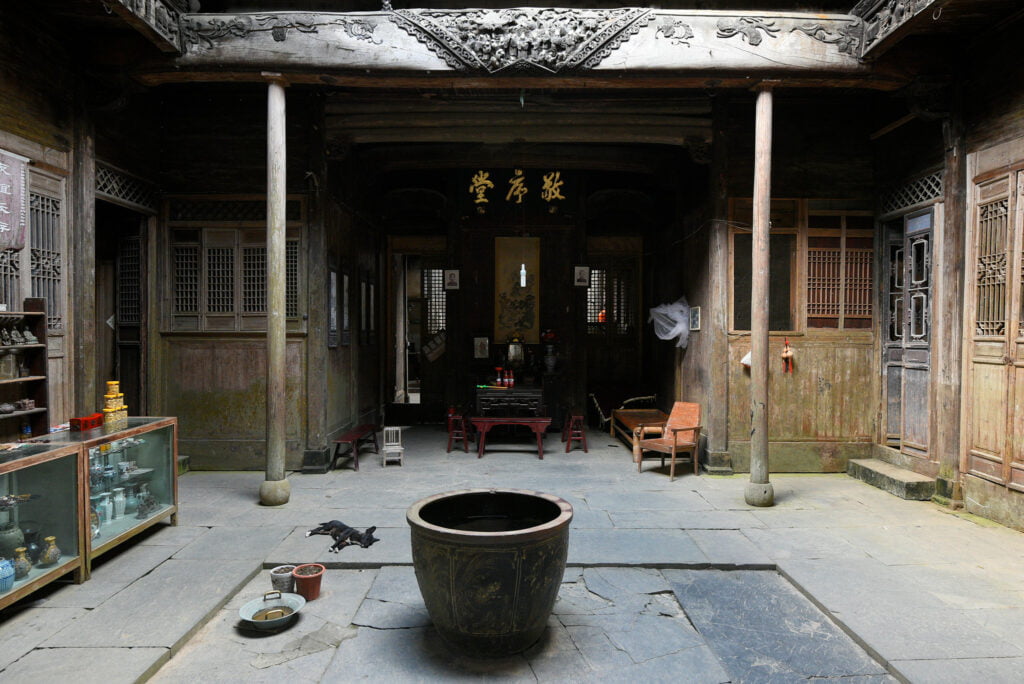WHERE AM I GOING?
You’ve probably never heard of Wuyuan County – thats OK. Most Chinese tourists have heard of us for rape flower season in March. We’re surprisingly easy to get to and nothing like as commercial as Moganshan.
Wuyuan is a relatively little known place – a county covered in forests and villages in Jiangxi Province. In years gone by, it was fabulously wealthy and is still littered with trader’s mansions. The Skywells is one!
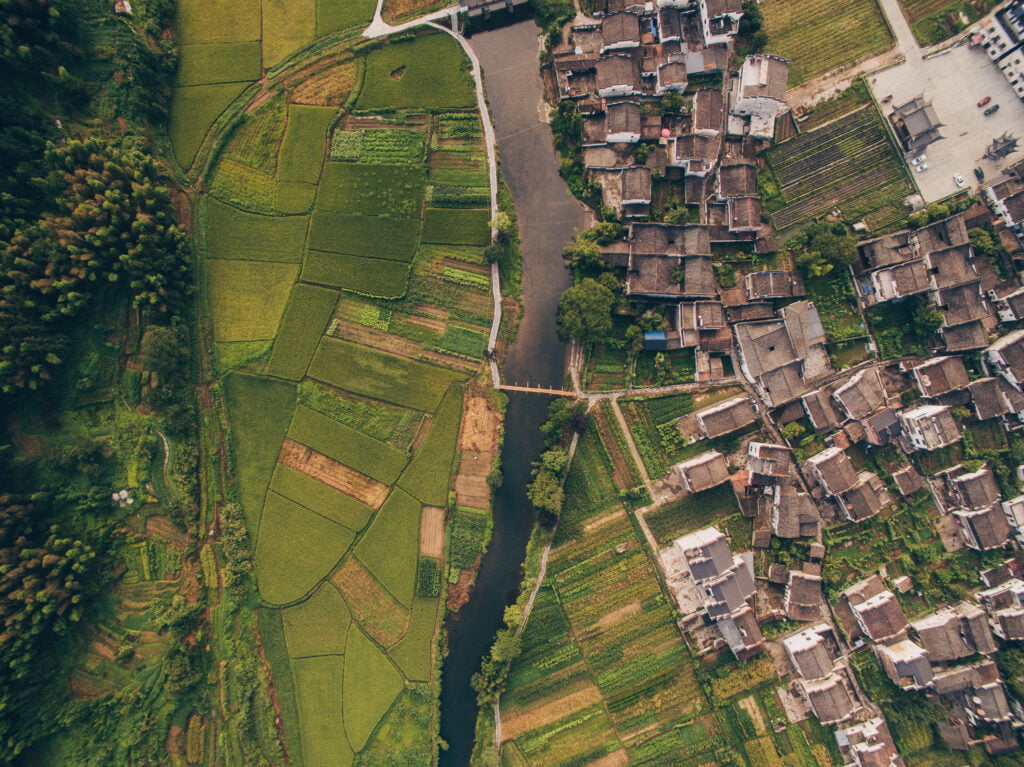
We are in Yan village, Wuyuan County – founded in 1199 on the furthest edge of what used to be known as HuiZhou, the land of the Hui Merchants. All of Huizhou was isolated mountain land, with little space for agriculture, or much else besides. To make up for this, land is thought of as a precious resource. Houses are tightly packed into each village to make room for fields, all surrounded by mountains and forests. This attitude still pervades today, in the pots, pans and old boxes filled with dirt growing ginger, spring onions, chilli peppers and everything in between. Any patch of dirt is fair game and no space is wasted.
In the Southern Song dynasty, the capital moved to nearby (ish) Hangzhou, meaning that for these industrious, ever flexible Hui people, opportunity beckoned. Crucially, the Huizhou area’s rivers flowed to Hangzhou, and the Hui were now on the highway to the heart of the empire. The men of Huizhou left in their droves to sell wood, tea, ink, lumber and salt around the empire. The people were transformed, from mountain men into learned merchants. Many would send back huge piles of cash to their wife, (wives) children and possibly a few concubines to build homes worthy of their status. These isolated hills, teeming with bandits and beasties became the Hamptons of Southern China, distant enough from the big cities to be pleasant, but close enough to be wealthy. The houses were built to match: booming halls to hold many generations of each family, safe from outsiders while the men were away. Villagers still boast today that the windows are so small even a child could not squeeze through from the outside and certainly nothing would make it over the big walls. Thus, a Hui merchant could sleep safe in his bed over in the city knowing his family were safe back home in their fortress mansions.
Yan village itself was a tea trading village. As the story goes, it was originally populated by Huns, a homeless tribe wondering from the North. They settled in Likeng, where a soothsayer told them of a place further South with superb Feng Shui: a river bend surrounded by hills and forests on each side. A village was born. The older villagers remember a time when the people of Yancun and neighbouring Sixi would meet for a big fight once a year on the footpath which still connects the two through the fields. They have a keen sense of place here – and who is an outsider, and who belongs.
